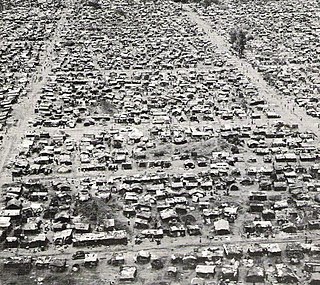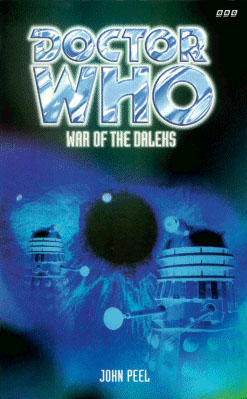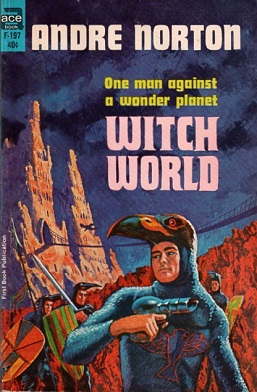
The Troubles were an ethno-nationalist conflict in Northern Ireland that lasted for about 30 years from the late 1960s to 1998. Also known internationally as the Northern Ireland conflict, it is sometimes described as an "irregular war" or "low-level war". The conflict began in the late 1960s and is usually deemed to have ended with the Good Friday Agreement of 1998. Although the Troubles mostly took place in Northern Ireland, at times violence spilled over into parts of the Republic of Ireland, England, and mainland Europe.

The Xi'an Incident was a major Chinese political crisis from 12 to 26 December 1936. Chiang Kai-shek, leader of the Nationalist government of China, was placed under house arrest in the city of Xi'an by a Nationalist army he was there to review. Chiang's captors hoped to end the Chinese Civil War and confront Japanese imperial expansion into Chinese territory. After two weeks of intense negotiations between Chiang, his captors, and representatives of the Chinese Communist Party (CCP), Chiang was released with a verbal promise to end the civil war and put up a firmer resistance to Japan.

George Habash, also known by his laqab "Al-Hakim", was a Palestinian politician and physician who founded the Marxist–Leninist Popular Front for the Liberation of Palestine (PFLP).

Christopher Mackenzie Priest was a British novelist and science fiction writer. His works include Fugue for a Darkening Island (1972), The Inverted World (1974), The Affirmation (1981), The Glamour (1984), The Prestige (1995), and The Separation (2002).

Ambazonia, alternatively the Federal Republic of Ambazonia or State of Ambazonia, is a political entity proclaimed by Anglophone separatists who are seeking independence from Cameroon. The separatists claim that Ambazonia should consist of the Northwest Region and Southwest Region of Cameroon. Since 2017, Ambazonian rebels have engaged in armed conflict with the Cameroonian military, in what is known as the Anglophone Crisis, attempted to set up a Government-in-exile and supportive militias have exerted control over some remote regions of the claimed territory. No country has recognized Ambazonia's existence as of 2024.

Greater Somalia sometimes called Greater Somaliland is the geographical location comprising the regions in the Horn of Africa in which ethnic Somalis live and have historically inhabited.

As-Sa'iqa officially known as Vanguard for the Popular Liberation War - Lightning Forces, is a Palestinian Ba'athist political and military faction created and controlled by Syria. It is linked to the Palestinian branch of the Syrian-led Ba'ath Party, and is a member of the broader Palestine Liberation Organization (PLO), although it is no longer active in the organization. Its Secretary-General is Dr. Mohammed Qeis.
The Gap Cycle is a series of science fiction novels by Stephen R. Donaldson, more usually known for his works of epic fantasy. The series was originally published between 1991 and 1996 by Bantam Books and was reprinted by Gollancz in 2008 in the UK. Here, Donaldson gave a loose retelling of Wagner's Ring cycle.

The Congo Crisis was a period of political upheaval and conflict between 1960 and 1965 in the Republic of the Congo. The crisis began almost immediately after the Congo became independent from Belgium and ended, unofficially, with the entire country under the rule of Joseph-Désiré Mobutu. Constituting a series of civil wars, the Congo Crisis was also a proxy conflict in the Cold War, in which the Soviet Union and the United States supported opposing factions. Around 100,000 people are believed to have been killed during the crisis.

Civil War: Front Line is an 11-issue, limited series tie-in to Marvel Comics's Civil War event which started in August 2006.

War of the Daleks is an original novel written by John Peel, published in 1997, based on the long-running British science fiction television series Doctor Who. It features the Eighth Doctor and Sam.

The Central Plains War was a series of military campaigns in 1929 and 1930 that constituted a Chinese civil war between the Nationalist Kuomintang government in Nanjing led by Generalissimo Chiang Kai-shek and several regional military commanders and warlords who were former allies of Chiang.

Witch World is a science fantasy novel by American writer Andre Norton, published as a paperback original by Ace Books in 1963. It inaugurated the Witch World series and established a setting that she eventually shared with other writers.

The Spanish Civil War was a military conflict fought from 1936 to 1939 between the Republicans and the Nationalists. Republicans were loyal to the left-leaning Popular Front government of the Second Spanish Republic, and consisted of various socialist, communist, separatist, anarchist, and republican parties, some of which had opposed the government in the pre-war period. The opposing Nationalists were an alliance of Falangists, monarchists, conservatives, and traditionalists led by a military junta among whom General Francisco Franco quickly achieved a preponderant role. Due to the international political climate at the time, the war had many facets and was variously viewed as class struggle, a religious struggle, a struggle between dictatorship and republican democracy, between revolution and counterrevolution, and between fascism and communism. According to Claude Bowers, U.S. ambassador to Spain during the war, it was the "dress rehearsal" for World War II. The Nationalists won the war, which ended in early 1939, and ruled Spain until Franco's death in November 1975.
United Nations Security Council resolution 1193, adopted unanimously on 28 August 1998, after recalling Resolution 1076 (1996) concerning Afghanistan, the Council discussed the deteriorating political, military and humanitarian situation in Afghanistan during the ongoing civil war in the country.

The Nationalist faction or Rebel faction was a major faction in the Spanish Civil War of 1936 to 1939. It was composed of a variety of right-leaning political groups that supported the Spanish Coup of July 1936 against the Second Spanish Republic and Republican faction and sought to depose Manuel Azaña, including the Falange, the CEDA, and two rival monarchist claimants: the Alfonsist Renovación Española and the Carlist Traditionalist Communion. In 1937, all the groups were merged into the FET y de las JONS. After the death of the faction's early leaders, General Francisco Franco, one of the members of the 1936 coup, headed the Nationalists throughout most of the war, and emerged as the dictator of Spain until his death in 1975.

The Republican faction, also known as the Loyalist faction or the Government faction, was the side in the Spanish Civil War of 1936 to 1939 that supported the government of the Second Spanish Republic against the Nationalist faction of the military rebellion. The name Republicans was mainly used by its members and supporters, while its opponents used the term Rojos (Reds) to refer to this faction due to its left-leaning ideology, including far-left communist and anarchist groups, and the support it received from the Soviet Union. At the beginning of the war, the Republicans outnumbered the Nationalists by ten-to-one, but by January 1937 that advantage had dropped to four-to-one.

The South Yemen civil war, colloquially referred to as the events of '86 or the events of January 13, or more simply as the events, was a failed coup d'etat and armed conflict which took place on January 13, 1986, in South Yemen. The civil war developed as a result of ideological differences, and later tribal tensions, between two factions of the ruling Yemeni Socialist Party (YSP), centred on Abdul Fattah Ismail's faction, at-Toghmah, and Ali Nasir Muhammad's faction, az-Zomrah, for the leadership of the YSP and the PDRY. The conflict quickly escalated into a costly civil war that lasted eleven days and resulted in thousands of casualties. Additionally, the conflict resulted in the demise of much of the Yemeni Socialist Party's most experienced socialist leadership cadre, contributing to a much weaker government and the country's eventual unification with North Yemen in 1990.
Hani al-Hindi (1927–2016) was a Syrian politician and activist. He co-founded the Arab Nationalist Movement with George Habash and served in the cabinet of Salah al-Din al-Bitar in 1963.

Palestinian nationalism is the national movement of the Palestinian people that espouses self-determination and sovereignty over the region of Palestine. Originally formed in the early 20th century in opposition to Zionism, Palestinian nationalism later internationalized and attached itself to other ideologies; it has thus rejected the occupation of the Palestinian territories by the government of Israel since the 1967 Six-Day War. Palestinian nationalists often draw upon broader political traditions in their ideology, such as Arab socialism and ethnic nationalism in the context of Muslim religious nationalism. Related beliefs have shaped the government of Palestine and continue to do so.

















